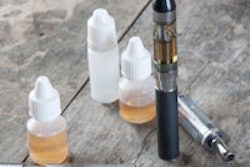Declines in smoking among U.S. youths have been observed since the late 1990s. However, limited information exists on trends in smokeless tobacco use among U.S. youths, according to a research letter in the Journal of the American Medical Association (May 14, 2013).
Israel Agaku, DMD, MPH, of the Harvard School of Public Health, and colleagues analyzed recent trends in prevalence of smokeless tobacco use among youths using the 2000-2011 National Youth Tobacco Survey, a biennial national cross-sectional survey of U.S. middle school and high school students.
Samples during 2000 through 2011 ranged from 35,828 students in 324 schools in 2000 to 18,866 students in 178 schools in 2011. Current smokeless tobacco use was defined as use of snuff, chewing, or dipping tobacco for one or more days within the past 30 days.
The researchers found no significant change in overall smokeless tobacco prevalence between 2000 (5.3%) and 2011 (5.2%). Downward trends were observed in the age groups of 9 to 11 years and 12 to 14 years. Prevalence increased in the age group of 15 to 17 years.
"The prevalence of smokeless tobacco use among U.S. youths did not change between 2000 and 2011 and remained generally low. However, subgroup differences were observed," the study authors wrote.
The use of modified traditional smokeless tobacco products, such as moist snuff, coupled with lower taxes on smokeless tobacco products (versus cigarettes), may have contributed to the stable prevalence of smokeless tobacco (versus the declining trend for cigarettes), they noted.
"These findings emphasize the need for evidence-based interventions to reduce smokeless tobacco use among youths," the study authors concluded.



















